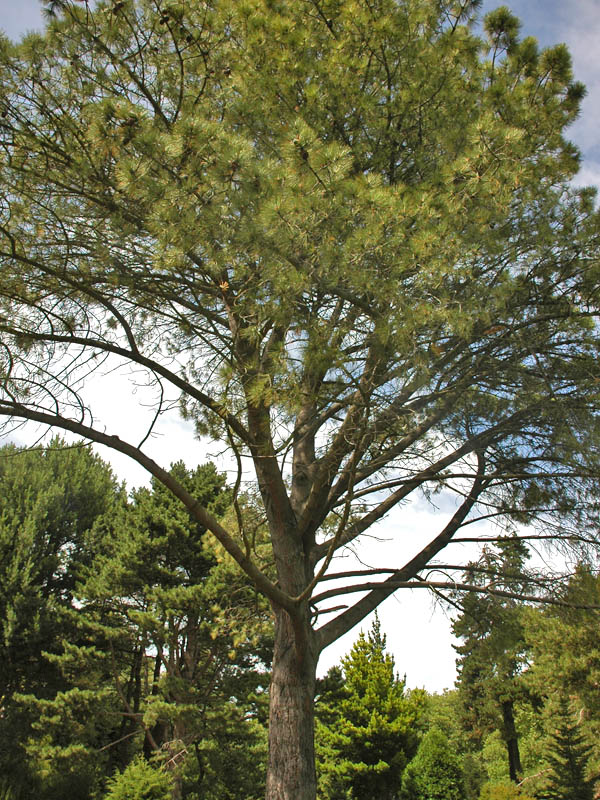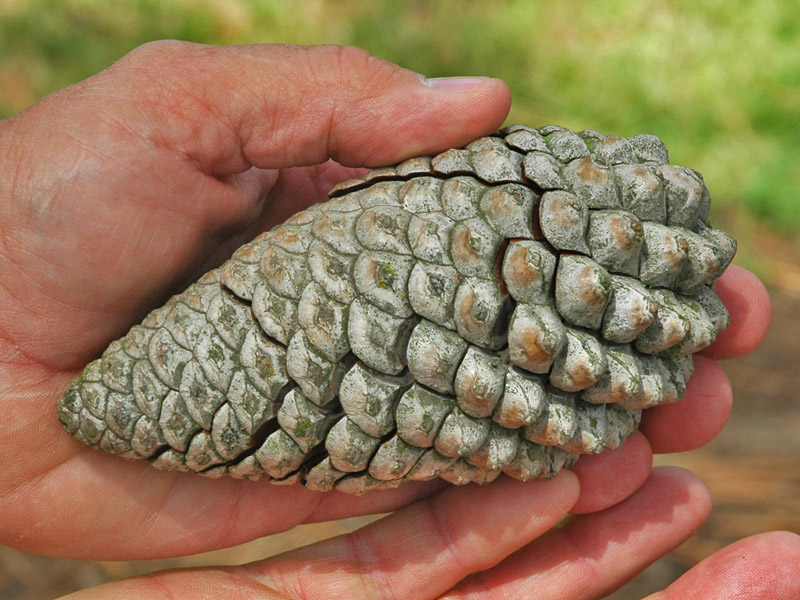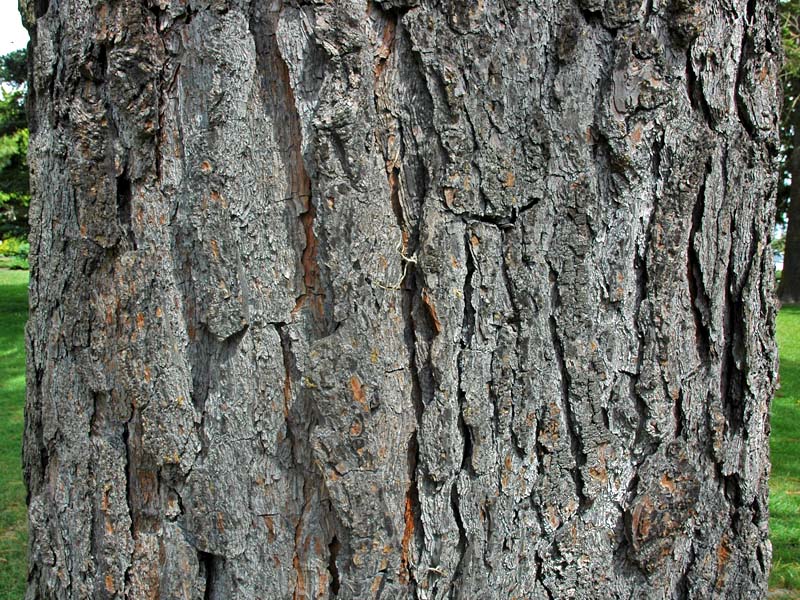
Woody > Pinus > Pinus torreyana > Pinus torreyana
Pinus torreyana
Soledad Pine or Torrey Pine
Origin: Native of the south western United States of America.
Mike's
Opinion


"
Native to the California coast, this is a rare pine in North America. The tree is very adaptable and can withstand extreme weather conditions including hurricane winds, rain, intense heat and humidity. This species is relatively long lived with some recorded specimens reaching up to 150 years old.
Michael Pascoe, NDP., ODH., CLT., MSc. (Plant Conservation)
"
| Family |
| Pinaceae |
| Genus |
| Pinus |
| Species |
| torreyana |
| Category |
| Woody |
| Type |
| Tree (evergreen) |
| Pronunciation |
| USDA Hardiness Zone |
| 8 - 10 |
| Canadian Hardiness Zone |
| 7b - Requires cool season protection under glass. |
| RHS Hardiness Zone |
| H2 - H5 |
| Temperature (°C) |
| -12- 4 |
| Temperature (°F) |
| 15 - 40 |
| Height |
| 15 m |
| Spread |
| 10 - 14 m |
Photographs
Description and Growing Information
Flowering Period
| General Description |
| Large in size with most specimens having an irregular or unkempt form. Deep green needles in fascicles of five. Cones of this species are larger and heavier than most pines. |
| Landscape |
| This species is truly a great evergreen to add to any landscape because of its beautiful deep green foliage and intriguing cones. |
| Cultivation |
| Light sandy or gravely loam, well drained soils with acidic to neutral conditions. It requires full sunlight and will not tolerate shade but will withstand some humidity; once established it can survive drought. |
| Shape |
| Tall, very broad and open canopy. |
| Growth |
| Medium |
| ID Characteristic |
| Specimens in the natural landscape are easily recognized by their unkempt form personified by heavy winds. |
| Habitat |
| Along the southern coast of California. |
| Bark/Stem Description |
| The bark is smooth, and reddish brown in young specimens, eventually turning grey, becoming very rigid and scaly with maturity. |
| Flower/Leaf Bud Description |
| Buds are 2.5 cm long, ovular, cone shaped and pale brown in colour. |
| Leaf Description |
| Deep green, 5 needle fascicles are 2 mm wide and range anywhere from 20-30 cm long. They can be straight but sometimes have a slight curve to them from harsh winds. |
| Flower Description |
| Pine trees don’t actually have flowers; they have “strobili” which serve the same purpose. Strobili are pollinated by wind and the tree is monoecious. |
| Fruit Description |
| The Torrey Pine produces cones that are not only noticeably larger but heavier than most other cones. Cones are approximately 10-15 cm long, a striking grey almost silver colour. The cones have been known to stay on the tree for up to 10 years, slowly releasing their seeds. |
| Colour Description |
| Foliage is an attractive deep greenish-grey colour, cones are greyish silver, and the bark is brown but as the plant matures it turns grey. |
| Texture Description |
| Medium. |
| Notable Specimens |
| Stanford University, California, United States of America. |
| Propagation |
| Propagate through seeds. For rapid and complete germination, seeds should be sown in individual pots followed by a cold stratification period of at least 30-90 days. It is best to plant seedlings out in their permanent locations early so that they may develop a strong root system. |
References
David, M. "Propagation of Ornamental Trees, Shrubs, and Woody Vines." (2010): n. pag. Web
Smith, Jane Kapler. "Index of Species Information." USDA Forest Service. N.p., 2013. Web.


